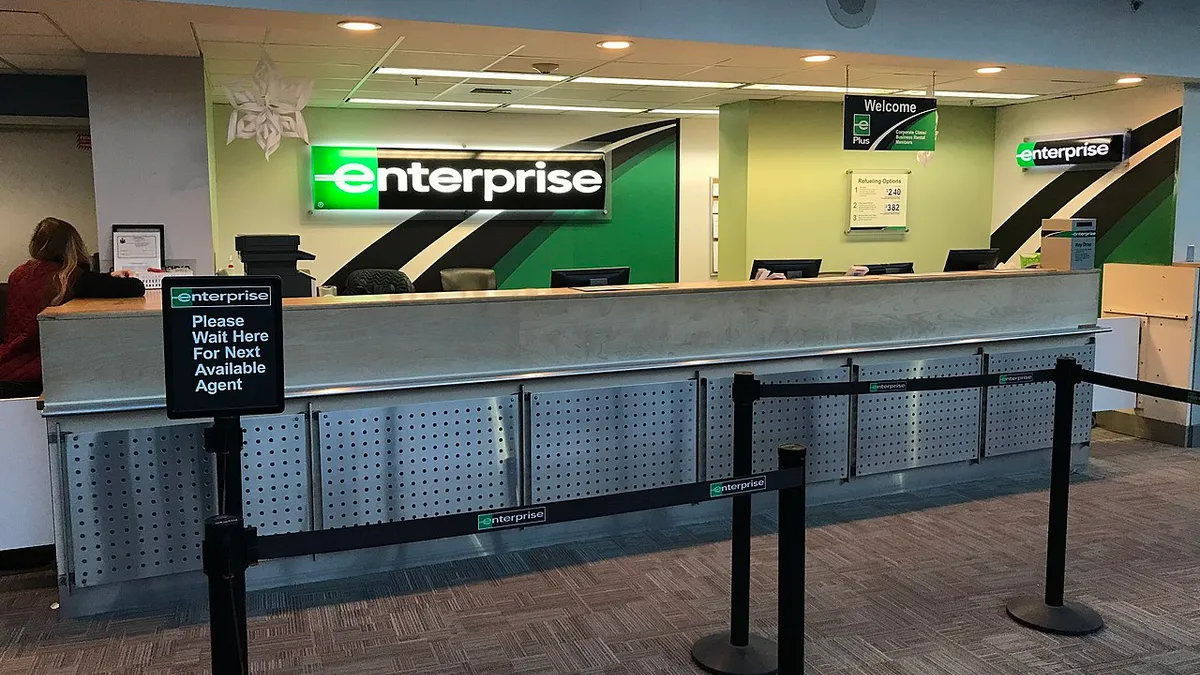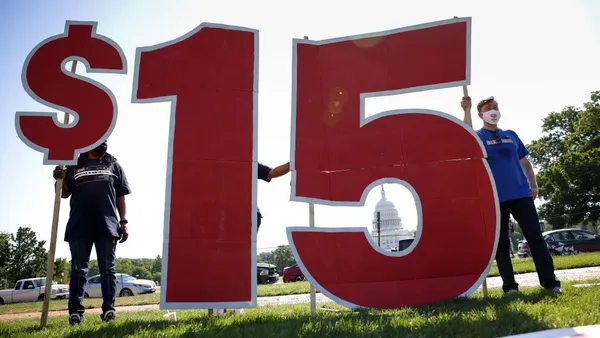Dive Brief:
- A former Enterprise employee has sued the company on behalf of herself and "approximately hundreds" of similarly situated former employees, alleging it failed to provide advance notice of layoffs as required by the Worker Adjustment and Retraining Notification (WARN) Act (Benson v. Enterprise Holdings Inc., No. 6:20-cv-00891 (M.D. Fla. May 27, 2020).
- Elva Benson, the lead plaintiff in the suit, claimed that Enterprise terminated her and the other putative class members without cause and without advance written notice around April 27. Benson said she was furloughed in March due to COVID-19, "meaning Defendants knew its business was suffering and, thus, knew a mass layoff was coming."
- Enterprise did not respond to an HR Dive request for comment.
Dive Insight:
Enterprise isn't the first employer to face a class action lawsuit of this nature during the pandemic. In April, two former employees of restaurant chain Hooters alleged that the company enacted a mass layoff without notice on March 25. A statement by Hooters said the company and its franchisees "had no alternative" but to reduce its workforce due to COVID-19’s impact. That suit remains unresolved.
The pandemic has led to layoffs, furloughs and other labor reductions at many U.S. firms, and this reality is reflected in market data. In its Job Openings and Labor Turnover Survey for March, released mid-May, the U.S. Bureau of Labor Statistics found that the rate of nonfarm layoffs and discharges increased to 7.5%, a series high. In April, this rate decreased to 5.9%, BLS said in a June 9 update.
But whenever employers decide to furlough or lay off employees, they must pay attention to any applicable WARN Act obligations, employment law experts previously told HR Dive. A U.S. Department of Labor guidance document outlines the scenarios that trigger WARN.
State and local governments may have additional notice requirements, and some have made edits to these rules in recent months. New Jersey, for example, in January became the first state to require increased notice time, as well as severance pay, for certain plant closures, transfers and mass layoffs. However, after the pandemic's onset, the state amended the law to exclude any layoff resulting from national emergencies, among other scenarios, from its definition of "mass layoff."
Similarly, in California, Gov. Gavin Newsome suspended the usual notice requirements of the state's Cal-WARN Act through the end of the state of emergency he declared as a result of COVID-19.











